An Exercise in Overthinking
Some fragmented thoughts about that app that turns you into a Pixar character, a single snapdragon, pound cake, and stories worth contemplating
Friday, June 18
Grand Rapids, Michigan
Greetings, friendly reader.
Tristan is away visiting family for a few days, so Fozzie and I have felt a bit mopey, a bit unmoored. That helps explain why I’m late with my letter this week.
During a recent chat with my friend Laura, somehow we started talking about Voila AI Artist, the recently released app that turns you into a Pixar-like cartoon character. These avatars, usually accompanied by delighted captions, began appearing on my social-media feeds a few weeks ago. For some reason, adorable as some of the images were, I felt instantly uneasy. I’m not an early adopter of anything, so I just filed my feelings away in my “Jeff is a killjoy” folder and moved on.
Then, earlier today, I downloaded the app to see what it would do to my face. Actually, first, I tried it on Fozzie’s face. But every time I attempted to upload a picture of Fozzie, the app said, “No faces detected,” which seemed insulting and—seminary-geek allusion alert— unexpectedly Thomistic. (Thomas Aquinas did not have a high opinion of animals.)
Here’s what the app did to me:
You might say: Jeff, are you overthinking this? It’s just a harmless bit of fun. To which I’d say: Overthinking is one of my few skills, so please do not take that away from me! And also: I have to wonder why we’re so eager to see versions of us that have been transmogrified. What is it about our real selves that makes these alternative images so captivating?
Laura, my accomplice in this particular exercise of overthinking, had a hypothesis: There are always aspects of our physical beings that irk us, and the app can playfully but also troublingly turn that displeasure into pleasure. “We want images of ourselves that aren’t actually real,” she said. “We think we can accept our bodies in real life if only we weren’t this or that.”
That’s certainly true of the first element that jumped out at me when I regarded my Disneyfied self: the eyes. Such big, wide eyes! Truth is, my eyes—my slanty, slitty, Chinese eyes—are one aspect of my body that I’ve struggled to love. As a kid, I was teased for these eyes. In junior high, I’d stand in front of the bathroom mirror for way too long, trying to hold my eyes as wide-open as I could, as if I could train them to be bigger. Here, through a magical rearrangement of pixels, were the eyes of my dreams. An app, in a matter of seconds, had done for me what I could not do myself.
Does cuteness demand that certain elements of me disappear? Does beauty require that some parts of me be altered? The cartoonish Jeff has a nose that’s narrower than the real one; other Chinese people have paid thousands of dollars to make that happen in reality. My hard-earned worry lines have vanished, as if cinematic Botox had been injected into my face.
Eventually, I came to a realization that I struggle with this app because I’m still struggling with myself and with this very human body that I inhabit. To learn to love our bodies is good and faithful work that so many of us still have to do.
Two years ago, I preached a sermon to Laura’s congregation, City Church San Francisco, about our bodies. The Gospel passage that Sunday was John 12. So much happens in the short span of this story: Lazarus, raised from the dead, sits at the table with Jesus. Martha hovers, making sure there’s plenty of food. And Mary kneels before Jesus, breaks open an alabaster jar, and massages the valuable perfume into his feet. To compound the scandal, she takes her hair and wipes Jesus’s feet with it.
Through the embodied presence of these three characters, I heard a chorus of testimony.
“This is my body,” Lazarus says, providing physical evidence of Jesus’s miraculous work in his life.
“This is my body,” Martha says, offering her gifts of hospitality through her labors.
“This is my body,” Mary says, ignoring the naysayers with her profligate act of devotion.
To say, “This is my body,” with all of its weirdnesses and all of its perceived shortcomings and all of its strengths and all of its idiosyncrasies, is a radical and difficult act. In this story, we see how each of these figures use their bodies to do the holy work of loving and faithful testimony, all without uttering a word.
“I want to be more like Lazarus—claiming my place at Jesus’s table, recognizing that my Lord and my God has raised me and is raising me from the dead. I want this entire Chinese, gay, aching, delightful, horrifying collection of skin and bones to shout healing and wholeness like Lazarus’s shouts,” I said in my sermon. “I want to be more like Martha—putting my body into action. I want my passion for food and my heart for hospitality to serve faithfully, feeding and nourishing others. I want to be more like Mary—so overwhelmed by God’s love that I submit my body to Jesus’s honor and glory. I want to be a holy rebel like she was, caring only about her Lord and not the naysayers, creating clouds of grace while others scream derision and shame.”
Maybe this is a lot to say in response to a frivolous app. Perhaps coming to a place where I can see the app as playful and fun will be growth for me; a case could be made. For now, I am who I am, overthinking mind and all. My body is what it is too. And I want to keep learning to love him as he is in reality, slanty, slitty, Chinese eyes and all.
What I’m Growing: This will come as no surprise to my closest friends, who know that I’m a big dreamer: One of my goals this year was to grow a flower that is not a zinnia. And by “a flower,” I mean that literally. Just one flower. That’s all I wanted. When Fozzie and I went to the garden this morning, I realized that I had attained my ambition, so I am now ready to retire. Behold the most coddled, expensive, labor-intensive snapdragon in Grand Rapids.
What I’m Cooking: When I ate pound cake growing up, it was always the same kind, because my mom wasn’t a baker: Sara Lee, from the freezer section. On Sundays, when the weekly coupons came with the newspaper, I’d flip through them hoping that there would be one for Sara Lee, so I could convince my mom to get me a pound cake. I had a peculiar affection for the end pieces, which had a crust that wasn’t actually crusty.
In the years since, I’ve thought a lot about baking pound cake, but I’ve never had a Bundt pan. Last week, after we picked strawberries, a craving set in—and I realized that using a loaf pan would be more faithful to my childhood memories anyway. But I wanted a pound cake that didn’t feel as heavy and dense as the name sounds. A few minutes on Google yielded this recipe, which partnered wonderfully with the macerated berries I wrote about last week and lots of whipped cream.
What I’m Reading: Tomorrow is Juneteenth. I definitely have opinions about how and why it became a national holiday this week, but I think this is a moment to listen to and contemplate the complex reactions and observations of Black Americans. One take worth pondering comes from the talented novelist and journalist Kaitlyn Greenidge, who shared her reflections in the New York Times: “When a holiday becomes co-opted like this, those who can gain a sense of self and solidarity from celebrating it often lose it. The agency that comes from deciding your own traditions—a cold water toast, a watch night—becomes lost to a corporate calendar and a megastore selling you a Juneteenth cookout checklist. You can lose sight of the possibility that exists in marginalized histories, which is the space to imagine another, better world.”
What I’m Listening to: Some years ago, I met the Los Angeles Times reporter Cindy Carcamo through a fellowship program. Since then, I’ve followed her journalism from a distance, always admiring her keen analysis, her sharp observational skills, and her profound empathy. But I didn’t know the human story behind some of that empathy until I heard a recent episode of This American Life. I commend it to you.
I know it is such a tender subject for many of us, but if you’re willing to share: How have you struggled with your body, or how society defines beauty, or what messages the media sends about what bodies are worthy? I’d love to be able to hold those things in prayer for you. Leave a comment if you’d like to—or feel free to reply to this email if you’d rather share privately.
Finally, on this theme of bodies: Last week, my friend Nadia Bolz-Weber wrote a lovely prayer entitled “God grant us compassion toward our bodies.” Here’s a little snippet:
Lord, on days when I struggle with antagonism toward my own precious body, replace that contempt with your own gleaming compassion. Help me be gentle with her like you are with me.
May I forgive my own trespasses against her – the times when I underfed and overworked her, the times when I only asked endlessly of her and gave so little back. The times I spoke with such unkindness.
You can read the entire beautiful thing here.
As always, I’m so glad we can stumble through all this together. May you find rest—in your spirits, in your souls, in your bodies—this weekend. I’ll try to write again soon.
Warmest wishes,
Jeff

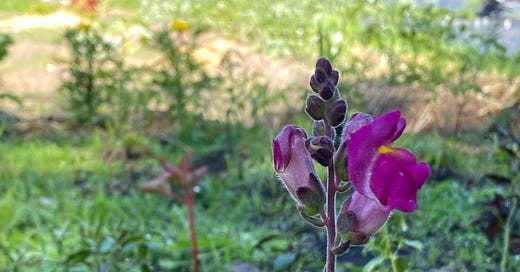


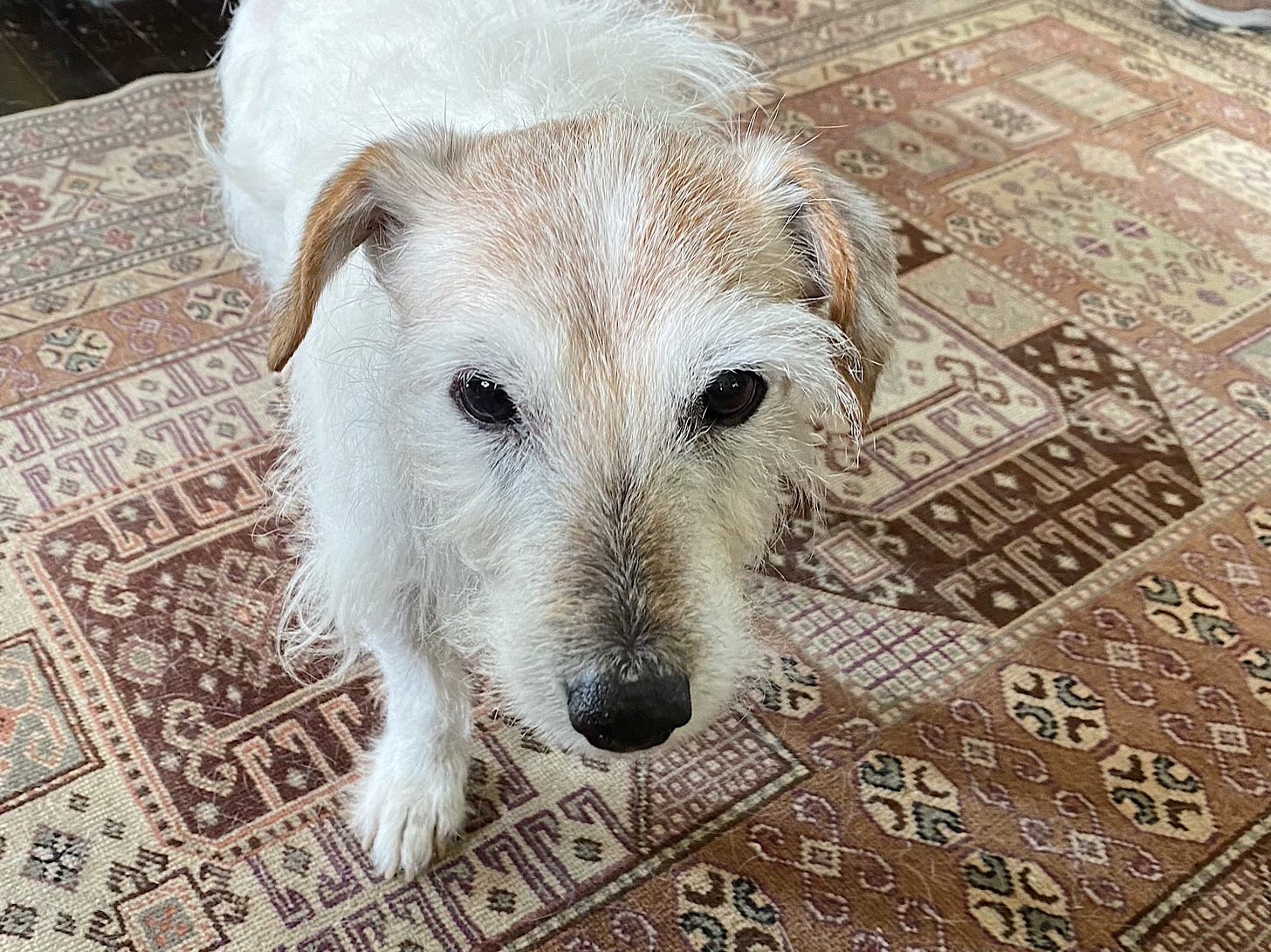
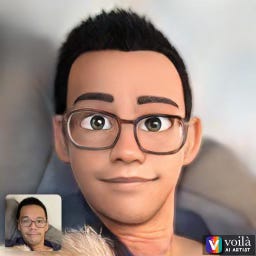

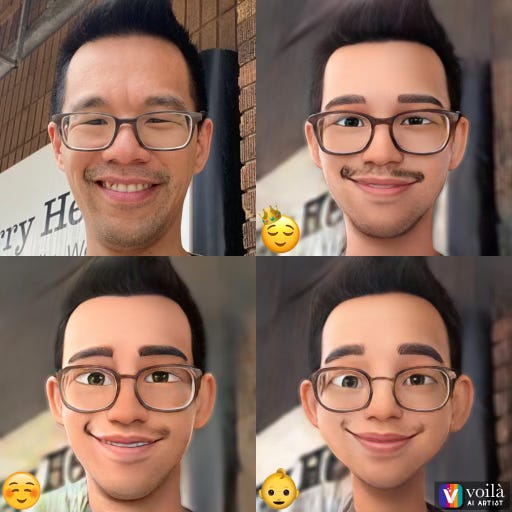

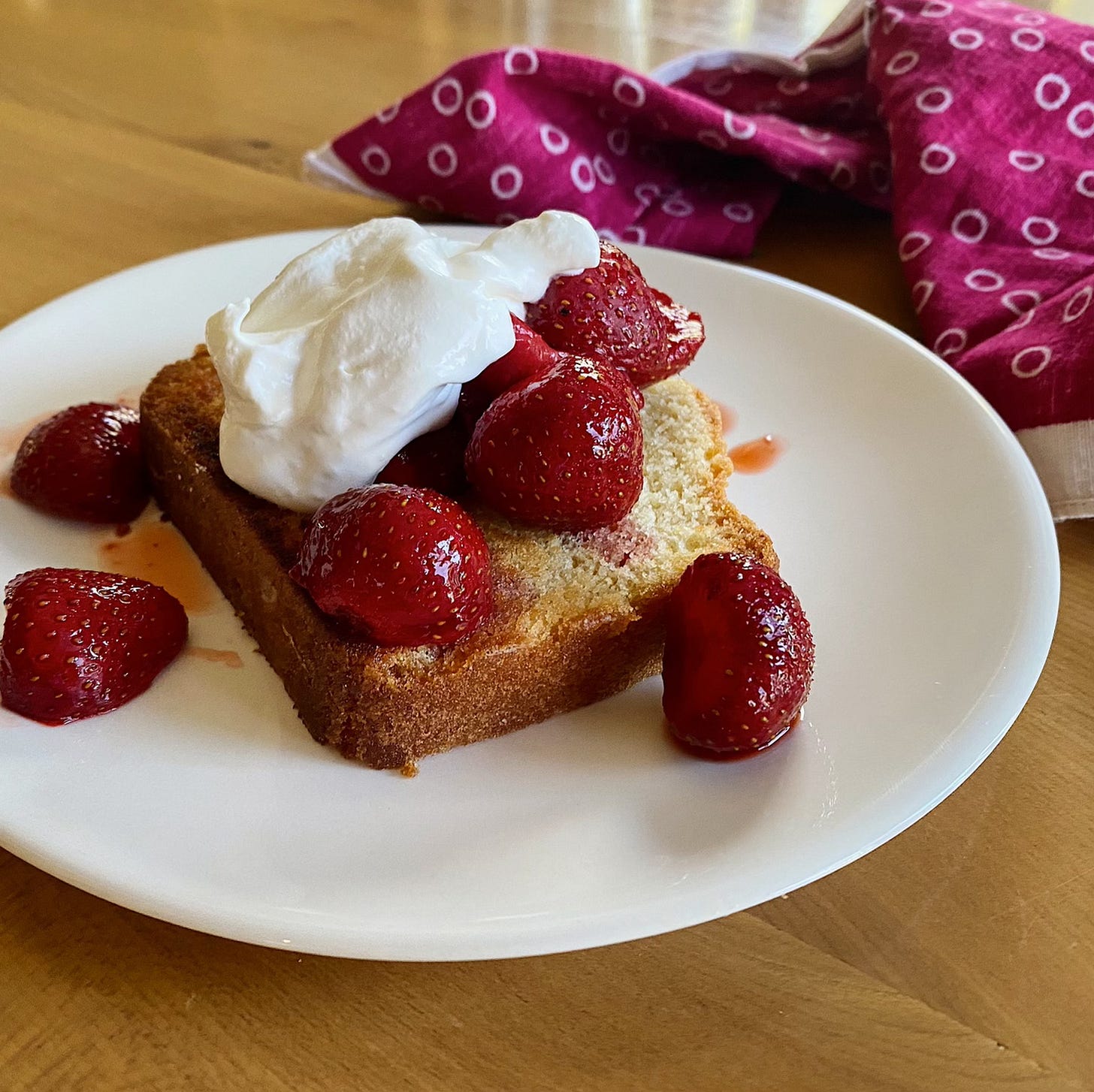
I will shout this from every social media platform rooftop: the moment I laid my own regular white girl eyes on you, I thought: “he has the kindest most lovely eyes and warm smile I’ve ever seen”. So there’s that.
Love these thoughts. My concern with the app was what horrors for privacy and data collection it might hold. haha
I don't know how to write about my struggles with body. I'm not fat, as in what fat activists would consider fatness, but I'm not thin, as in what is acceptable to the world I have a body in. My doctor's office has a flag for "unhealthy BMI" on my list of issues to check for with every visit, but even by that pseudoscientific bullshit, by any chart I can find online, I'm "normal." I'm in the sort of body that looks like it was meant for thinness, but something went wonky and choices were made and "this is what's wrong with America today." A walking stereotype, here and abroad.
I wish I were thinner, and I wish I didn't have to wish that. I cannot change the inherent biases of the people I am supposed to be "finding." Finding, the ever-constant recommendation to solve all problems. If only I could "find people." People who.... an infinite list promising love and belonging and connection and mental health and companionship and security and spiritual enlightenment. Finding people who don't see my roundness and judge or assume or suggest tips to fix me. There's so many things I would do if I were smaller, I think, if I took up less space. I could be so many things that only thin girls are supposed to be. So I try harder, but never enough. It's genetic, in part, I know, but surely, I can be better, I can earn it, I can win this, my enneagram 3ness tells me it's just enough dedication away, and my 4 wing is drowning in shame. For the cake last night and the pasta I'm about to eat and the years before I eliminated things that wrecked my blood sugar until I had to cut them out.
Shame is the song from the time our mothers first say they don't think we should be seen in public "like that" (not from immodesty, but from our baby fat no longer being cute anymore) and they are just "concerned for our health." From the time our parents bribe us into losing weight by offering to buy us cool, popular girl clothes. From the time we realize the reason the popular girls never let us in. The time we realize why we'll never make the dance team. From the crying in the dressing room when a shopping buddy or family member or salesperson recommends we try on a bikini we are sending heart eyes to, just to see if we like the way we look in it and for the first time, we wish we would die. From the way we self-medicate or are comforted by others with a Dairy Queen Blizzard. Then they judge us for being able to finish it. Or are taught to self-soothe with a drink or chocolate, from the ones we love or from advertising all around us. Then are told we are lazy and stupid for falling for it all, the sign of a degenerate generation, consumers of gluttony, with our twangy accents and chubby faces and bulging jeans symbolic of the worst of humanity. We are too depressed and lonely to make dinner. We microwave something that will inevitably be our shame once again, just to keep ourselves from starving.
So I don't know how to write about my body in a way that has anything inspirational or spiritual to say. I'm a millennial woman, with a childhood made of Happy Meals and sugar in the '90s, a teen of the anorexia-driven 2000s, and survived the diet app 2010s. Born into the try harder, be better, work to win it, no pain no gain, before and after photo, transformation culture... but never escaping.